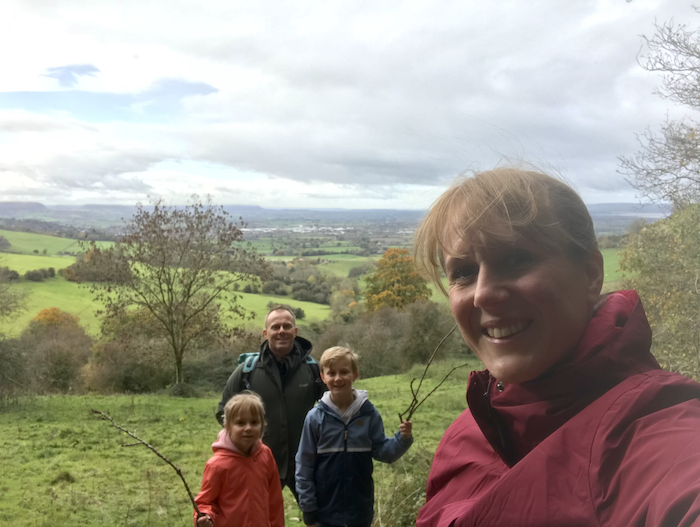Has lockdown helped families find a new fun in fitness?
As parents our lives are full, and dedicating time to physical activity (PA) can feel like just another demand or even a burden.
Children will steadfastly refuse to join in with structured PA unless there is an element of fun involved. Going on a 3km jog? Boring! Covering the same distance playing ‘the floor is lava’? No problem!
So, should parents also be more demanding about the inclusion of fun in PA, or do we need to be more openminded as to what makes PA fun?
Either way, if we can equate fitness less with being a “workout” and more with a child’s “playtime” perhaps will we participate more willingly. Finally, if we can nail that fun and feel-good factor better will it help us sustain participation better than doing so because we feel we have to?
We may feel non-plussed about exercise even on a good day. Throw in a pandemic and triple the multi-tasking, and the ability or appeal of pursuing fitness diminishes even more.
Studies report increases in sedentary behaviours during lockdowns across several populations, including children. This is hardly surprising. I am a mum of two primary-aged children and I’ve never ever been stretched as much as I have whilst home-schooling, working, keeping house etc without any outside help during lockdown. Even as a fitness professional, my activity levels dropped.
I’m lucky that the nature of my job as a personal trainer keeps me relatively active, but my solo-training goals have certainly had to take a back seat and I’ve missed the outlet for stress (and maybe one or two extra consumed calories…). During England’s first full lockdown, I tried to carry on my personal workouts but I reached full capacity quicker than I expected.
Oh schools, playdates and childcare options – we’ll never take you for granted again!
Lack of time and tiredness are two of the most common barriers to parents being more active. I’d never felt either more intensely. Other parents I spoke to were experiencing the same, with many feeling they spent less time away from and the work (and home-schooling) desk than they did pre-lockdown. Even if they still wanted to do their own workout, there just wasn’t time without sacrificing family or personal downtime. Sound familiar?
All this sounds very gloomy but there are some positives emerging.
Whilst lockdown may have reduced our inclination and usual opportunities to be active, it has also given us a much-needed pause for thought. Not just thought on how to cope with lockdown but about our priorities and lifestyles during lockdown and beyond, and many of us have put our conclusions into action. The following lamenting lyrics keep coming to mind as I consider why:
“Don’t it always seem to go,
That you don’t know what you’ve got ‘til it’s gone”
But at least through lockdown we’ve known that (some semblance) of normality would return. Unlike the paved-over forest in the song, we get to have a second chance, or third or fourth, depending how many lockdown experiences we may have! In missing what we couldn’t have, many of us are now determined to make the most of opportunities when lockdown lifts, including to be physically active. We don’t just want our freedom to be active for the sake of it either.
Motivations will vary but the correlation between the severity of Covid and underlying health conditions has us wanting to improve and maintain our health better.
Research shows many now value all the social, physical and mental health benefits of physical activity much more too. A 2020 study by the organisation Women in Sport found that 46% of women said that physical exercise has become more of a priority in their life. This suggests a mindset shift from ‘working out’ for the sake of it, or because we feel we have to, to one where we appreciate the sense of freedom it provides and the potential benefits of an improved and extended quality of life. These are intrinsic motivations to be physically active – a mindset necessary to get us started or restarted with exercise, but is it enough to create a long-term habit of exercise?
Another outcome of lockdown is that we‘ve ‘re-found’ more accessible ways of being active, and this is a big player in sustaining our PA levels.
The value of a simple walk, jog or bike-ride has rocketed. These are all free, and easy to do from the doorstep – perfect! The benefit to relationships is obvious, but in terms of PA, who better to keep you moving than someone you live with? Leading by example is one of the best ways to instil good habits in children. Equally, many agree that keeping children happy and encouraged through joining in with their requests for family exercise is a great motivator for parents.
So where does the ‘fun’ part of the title come into all of this? Novelty is often a pre-cursor to fun.
It seems too simple to be true but stripping back the way we stay active, from clubs and events to family walks and bike-rides, is novel.
Children delight in having their parent’s attention, and parent’s feel, well, like parents… many of us hankered for more ‘quality time’ with our kids, and to a great extent lockdown made it happen!
Of course, there have been many a grumble and small foot stamping along the way, but I expect time will tell that so much physical activity with family will be remembered fondly, and hopefully will have set a standard that will see it continued, at least to a meaningful extent, post lockdown.
A final point is the creativity that has come out of lockdown. The games revisited or made-up, indoors or outdoors have certainly kept many families with younger children moving.
Obstacle courses, hide and seek, online workouts and many more were repeatedly shared across WhatsApp groups and social media. There was something for everyone. Some activities gave parents 20 minutes peace to get on with work, and others gave the whole family a fun physical break from a screen and the distressing news around us. PA is more fun when we do it with others, making up games is fun, and discovering new ways to be active together help to keep family fitness novel, fun and compelling too.
Here’s wishing to at least one positive legacy of lockdown - a new enthusiasm for fun family fitness; “playtime” to benefit children and parents alike!
Susan
Sources and further reading:
Lockdown Research Implications for Women’s Participation, Women in Sport, 2020
Changes in physical activity, sedentary behaviours from before to during the Covid-19 lockdown, 2021, British Medical Council
Make Fitness Fun: Could Novelty Be the Key Determinant for Physical Activity Adherence?, 2020, Frontiers in Psychology



